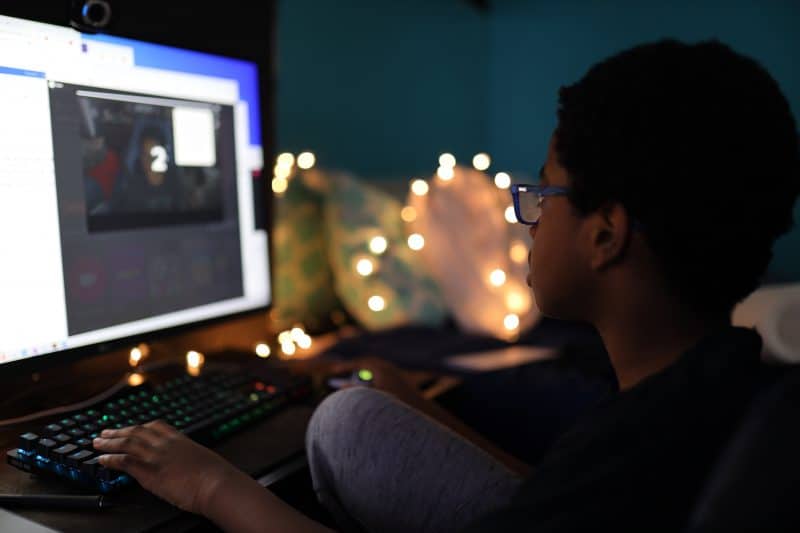Kids Who Learn Well During Covid-19 Disruptions: What Are They Doing Differently?
Submitted by KiasuEditor

Photo by Ralston Smith on Unsplash
Has your child’s school performance dipped since the Covid-19 school closures? You may have noticed this in your own child, and perhaps, you’re wondering if other children have been similarly affected.
A UK study, where insights were gathered through hundreds of visits with education and social care providers, concluded that learners’ experiences during Covid-19 fall into three broad groups:
- The resilient group — those who have been coping well all along, and still are
- The hardest-hit group — a group that is dealing with a combination of pandemic and personal circumstances
- The majority group — a group that has slipped back in their learning, to varying degrees
If you’re wondering what sets the “coping well” group apart from the others, it appears that privilege isn’t the defining factor. Instead, it is support from families and carers — for example, in the form of quality time spent together — that helps to buffer against declines in academic and social development.
As we await research pertaining to students in Singapore, we can take note of other findings from elsewhere:
- Compared to high-achieving students, low-performing students will likely be harder hit by Covid-19 school closures, as they are more prone to replacing learning time with leisure activities that impede development, such as excessive screen time.
- Previous research has shown that school absenteeism has a negative impact on test scores — this impact may be greater for math, compared to English language arts.
- A US study based on historical test scores of eight to 13 year olds projected that following Covid-19 school closures, students were likely to re-enter school with more variability in academic skills, as compared to a typical year. It also estimated that students who did not receive remote instruction during Covid-19 closures would return to school with approximately 63% to 68% of the learning gains in reading (relative to a typical school year) and with 37% to 50% of the learning gains in math.
- Learning loss resulting from school closures is not limited to core subjects such as math and English. School closures also affect a student’s social-emotional well-being, attitude towards learning, interactions with friends, and physical and psychological development.
How Parents Can Help Prevent The “Quarantine Slide”
If your child’s grades have dipped since the Covid-19 school closures, the best thing to do is to check in with your child’s teachers. Most local teachers are proactive about contacting parents when issues arise, but if you haven’t heard from them, they probably have their hands full focusing on the students who have been hardest hit by the pandemic.
To get better answers from your child’s teachers, ask them specific questions, such as:
- “What are the critical learning gaps that my child needs to address?”
- “How can we work on filling these gaps at home?” or “What would you like my child to work on at home, on a daily basis?”
- “Compared to peers of similar ability, how is my child doing, grades-wise?”
- “What is a realistic goal that my child can work towards for the next graded assessment?”
- “What are my child’s learning strengths?”
- “Is there a resource that you think might be useful for my child?”
Also, although children should be responsible for their schoolwork, you may not want to be completely hands-off in this area if your child’s grades have been slipping. For instance, do you know whom to contact, if your child has trouble accessing online school material? Has your child been submitting his or her homework assignments promptly? Is your child’s work properly filed away?
Another thing to be aware of is that all academic skills will ”decay” over time if they are not used, and this is especially true of skills that are procedural in nature. An example is a subject like math, where many of its concepts are unlikely to be practised in daily life. What this means is that if there is an extended break from math exposure, the learning loss (i.e. forgetting of learned skills) will be more pronounced. This is why some parents in our KSP community prefer their children to keep up their learning during the school holidays.
One way to guard against learning decay is to consistently set aside time for reinforcing key skills. If your child isn’t doing poorly enough to be invited to remedial classes in school, this work will have to be done at home, perhaps overseen by you or a tutor. (Read our guide to hiring a tutor without breaking the bank.) You can also take heart that even if your child has learned something and forgotten it, it will be easier to learn it again, if necessary.
Finally, do pay attention to your child’s overall development, and keep tabs on their stress levels and emotional wellness. To gently lead children away from their screens, create simple family rituals such as playing board games together. Encourage your children to invite their friends over to your home for some much-needed social interaction and bonding, and find a way to make room for regular physical activity, even if it’s just a walk in a nearby park.
With your child in a healthier frame of mind, you can then work on their social-emotional learning skills, such as self-management and the ability to tap into intrinsic motivation and a growth mindset. There is evidence to suggest that a boost in these skills are positively correlated with academic outcomes, and for parents who prefer to consider the bigger picture, this is where you will want to focus your energies, as opposed to ramping up on enrichment classes and assessment book drilling. In the long run, these will be the skills to serve your child well.
Need more learning tips? Read our guide to using the power of elimination to finetune your child’s revision process.